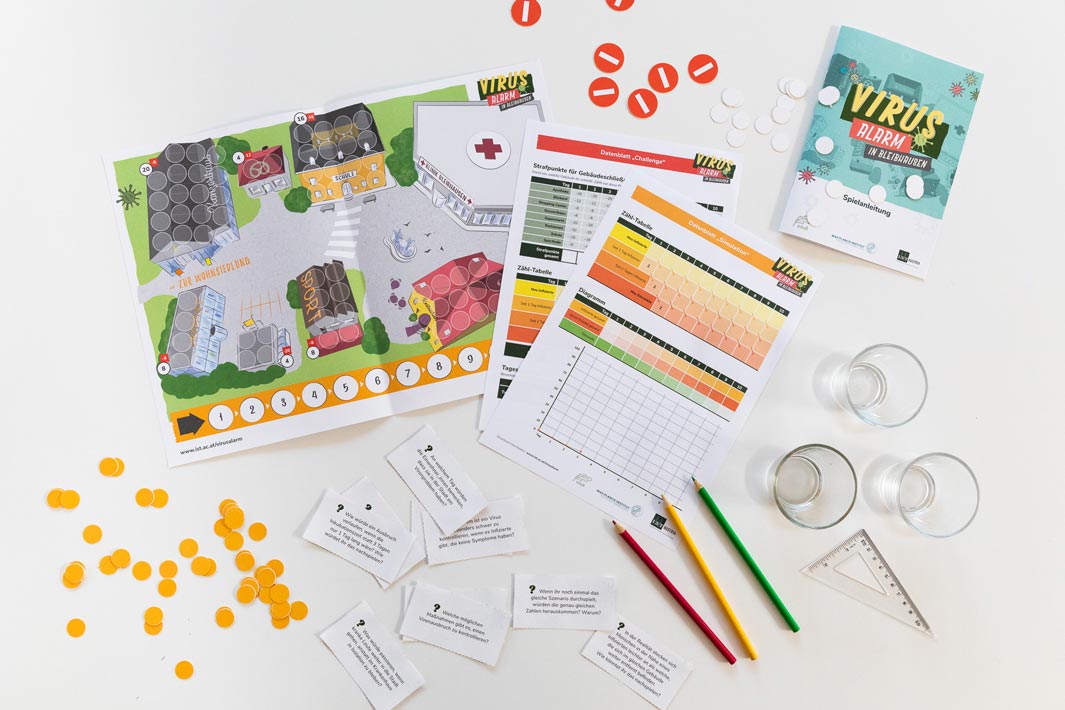January 22, 2021
When schoolchildren become pandemic pros: exploring the spread of viruses and the role of vaccinations using a board game.

Since last fall, Austrian living rooms have been turned into epidemiological research centers by numerous children playing the boardgame “Virus Alert in Stayhompton”. Developed by scientists from IST Austria and the Max Planck Institute for Evolutionary Biology, the game uses a fictitious small town, Stayhompton, with 100 inhabitants to make it tangible how viruses spread and what we can do to stop them.
Vaccinations in Stayhompton have started
The game, which is an equally good fit for schools and families, now has its third edition coming out. But as in the real world, the situation in Stayhompton is evolving fast – and vaccinations have recently started. IST Austria and the University College of Teacher Education Vienna (PH Wien) now present newly developed teaching materials, which enable young people and their teachers to explore, among other things, the role of vaccinations in the fight against an epidemic. In an easily accessible way, players get to understand basic epidemiological concepts such as reproduction rate, hospital capacities or herd immunity, thereby becoming real pandemic pros.
“The board game with a city map and 100 inhabitants has the advantage over fast online simulations that the students can literally get a grip on how quickly a virus can spread,” explains Magdalena Steinrück, responsible for the development of the game at IST Austria. “Healthy, infected and vaccinated people are represented on the board by chips of different colors. By placing and counting these chips, the spread of the virus can be followed easily.”
Watch the corresponding video on YouTube
Virusalarm in Bleibhausen. © IST Austria
Tracing the footsteps of researchers with innovative teaching materials
“We want to teach students how researchers work and help them better understand the numbers and terms they know from the media. We want them to be able to form their own opinions,” adds Christian Bertsch, an expert in inquiry-based learning at the University College of Teacher Education in Vienna. “And while playing, the students quickly realize that, at least in the fictitious small town, the concert hall will have to remain closed for a while if only a few people want to be vaccinated.”
The game, including materials for a full class, ideas for implementation in the classroom and background information for teachers, is available free of charge as a Teacher Edition, and online training courses for teachers are also planned. Individuals and families can order the Home Edition, also free of charge, and download an extension on vaccination from the Internet. More information and ordering options at www.ist.ac.at/virusalarm
Project funding
This project was funded by Robert-Bosch-Stiftung.



